I am using the STM32F7-Discovery board and have been stuck at trying to enable the DWT cycle counter. From what I've seen online this should suffice for enabling it:
CoreDebug->DEMCR |= CoreDebug_DEMCR_TRCENA_Msk;
DWT->CYCCNT = 0;
DWT->CTRL |= 1;
However, whenever I run that code the values are not changed or the operations are skipped (I am not too sure what is happening).
I've tried making pointers to the addresses in memory and altering them directly with no avail either. Ex:
volatile uint32_t *DWT_CONTROL = (uint32_t *) 0xE0001000;
volatile uint32_t *DWT_CYCCNT = (uint32_t *) 0xE0001004;
volatile uint32_t *DEMCR = (uint32_t *) 0xE000EDFC;
*DEMCR = *DEMCR | 0x01000000;
*DWT_CYCCNT = 0;
*DWT_CONTROL = *DWT_CONTROL | 1;
Currently, the only way I've gotten the is when stepping through with the debugger in Visual Studios (with VisualGDB), if I change the value of DWT->CTRL to the ON value the cycle counter begins. Aside from that though, I cannot seem to get the value to change in code.
Edit: What could be causing the behavior where these lines of code are not performing their tasks but also not crashing and continuing.
CoreDebug->DEMCR |= CoreDebug_DEMCR_TRCENA_Msk;
DWT->CYCCNT = 0;
DWT->CTRL |= 1;
After running these lines of codes, all of the values at those memory locations stay the same and are not altered with the operations that were supposed to be performed.
E.G. :
//DWT_CTRL_CYCCNTENA_Msk = 1
DWT->CTRL |= DWT_CTRL_CYCCNTENA_Msk
Should result in the value of DWT->CTRL being 0x40000001 but it remains at its default value 0x40000000
The pictures below are an example of what is occurring during runtime.

